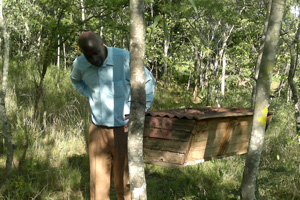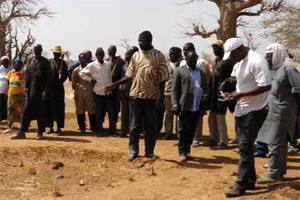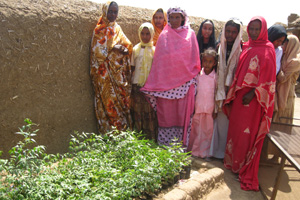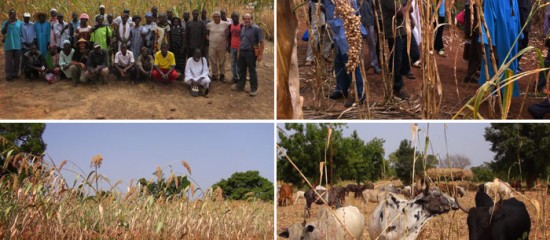
Agroecology. The Bold Future of Farming in Africa
A publication launched by the African Alliance for Food Sovereignty, showcasing the huge potential of Agroecology to feed Africa, fix broken food systems and repair damaged landscapes, providing abundant healthy and nutritious food sustainably while increasing incomes and improving climate resilience. The publication also illustrates 15 case studies.

Will the Green Revolution really ‘nutritionalise’ Africa?
Opinion by Million Belay.
We are told that high input agriculture will boost food production in Africa. A persistent worry for Million Belay is the loss of knowledge related to our nutritious, traditional crops if they succeed.

A systems approach against poverty
Opinion by Million Belay.
Why is poverty deepening in Africa even when millions of dollars continue to be poured in to alleviate it?, asks Million Belay. He answers by highlighting how we need to promote agroecology, treat agriculture as a system, and move away from green revolution approaches.

Biointensive Agriculture Training Program in Kenya
Manor House Agricultural Center provides training in low input farming as an alternative to conventional methods, which are heavily reliant on external inputs. Farmers practicing biointensive farming techniques experience significant yield increases and improved soil fertility and grow more nutritious crops. Since 1984, over 100,000 farmers have received this training, and an estimated 200,000 households now use methods of biointensive agriculture.

Agroforestry to Improve Farm Productivity in Mali
A research project on improved fallows examined how short-term rotations of selected perennial tree and shrub species impact cereal yields and soil quality in subsistence maize cropping systems. The effects of improved fallows on maize yields were significant when combining a tree species (Gliricidia) and a nitrogen-fixing legume (Stylosanthes). Read more

Agroforesterie pour la sécurité alimentaire au Malawi
Le Malawi est confronté à une myriade de problèmes environnementaux, sociaux et sanitaires, y compris l’insécurité alimentaire, la dégradation des terres et la déforestation. Un programme d’agroforesterie promeut la plantation d’arbres pour augmenter les rendements des cultures dans les sols épuisés, lutter contre la déforestation et autonomiser les femmes.

Bees bring a new buzz to family farming in Zimbabwe
One way that family farmers improve their resilience to both climatic and economic shocks is to diversify what is produced. More and different crops and livestock, particularly local varieties and breeds are being promoted. Two other options stand out too – bees and trees. These have the added advantages of complementing the production of agricultural crops and enhancing the agroecosystem. In Zimbabwe, the Ruzivo Trust has been promoting beekeeping, and the results are showing the sweet taste of success. Bees can help farmers break out of poverty.

Moving from vulnerability to resilience in Africa
In August 2012, the Seidu family had to cope with the bad harvest. Like many farming families in northern Ghana, they had to adopt the ‘one-zero-one’ strategy for the children and the ‘zero-zero-one’ strategy for themselves. ‘One’ represents a meal, ‘zero’ is no meal. So during the lean season, their four children had breakfast in the morning, nothing at midday, and a meal in the evening.

Home nurseries: Viable businesses with environmental awareness
Butana is a dry plateau in northern Sudan, east of the river Nile. Covering 65,000 square kilometres, less than 10% can be described as ‘woodland’ in the vaguest sense of the word, and even these trees are disappearing rapidly. The Butana Integrated Rural Development Project began in 2008 with the aim of supporting the livelihoods of poor family farmers by strengthening their resilience in the face of recurrent droughts. And improving tree cover was a key means of achieving this.

From slash and burn to ‘slash and mulch’
In semi-arid cropping regions of West Africa, fallow periods are getting shorter. As land becomes more scarce, farmers are not able to give their soils enough time to rest. This is leading to depletion of soil organic matter, severely threatening soil fertility and damaging soil structure. In the worst cases, crops hardly yield anything anymore. But this is not an option for family farmers. In Burkina Faso, some have found ways to restore their soils that have been dubbed ‘slash and mulch’. The improvement and spread of these techniques also proves the importance of partnerships between farmers and researchers in developing locally suited practices.
Home »
Africa
Initiatives by Region
Tags
agricultural investments
agriculture
agroecological approaches
agroecological farm
agroecology
agroforestry
climate change
Community participation
development
ecological farming
family farming
farmers
food
food policies
food production
Food Security
food sovereignity
food sovereignty
food system
food systems
freedom
hunger
indigenous community
land
land grab
nutrition
organic agriculture
peasants
policies
policy
research
resilience
rice
right to food
rural communities
SDGs
seeds
small-farmers
smallholders farmers
small scale farmers
sustainable agriculture
sustainable farming
training
transition
women
Other Websites
 150 organizations have signed on to the document Rio+20 Time to act. See the list of organizations which have signed on to it, at www.timetoactrio20.org 150 organizations have signed on to the document Rio+20 Time to act. See the list of organizations which have signed on to it, at www.timetoactrio20.org |
|
|

